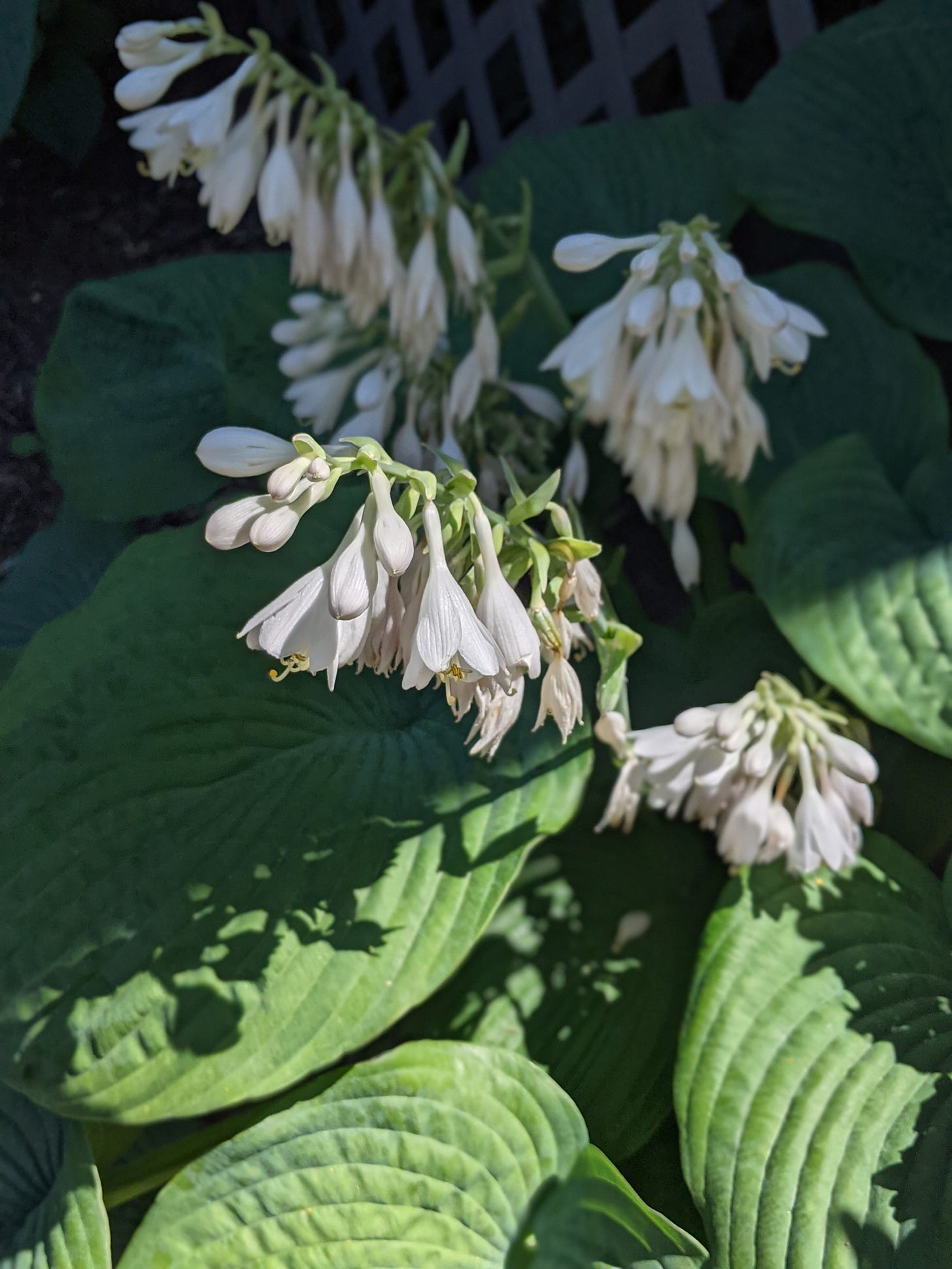

Discover more from Write More, Be Less Careful
what we measure: on writing and counting
count the things that matter, so you can get more of them
This newsletter was born in part out of my preoccupation with the ways that productivity culture is making its way into the writing world. I worry that metrics - follower counts, likes and shares on social media, page clicks, sales numbers - can discourage and distract us from the work of writing. I began this series in January 2020 by commenting on the twitter phenomenon of writers counting up their year’s stats, something I’ve seen much less of this year.
So no one is more surprised than me that in 2021, I’ve been won over to the gospel of counting.
Gretchen Rubin puts it this way:
Maybe there’s something you’d like to change in your life—to get more of something good or less of something bad. Try this: figure out a very concrete way to measure and track it. By counting the things that count—and pushing yourself to find a way to count the things that seem as if they can’t be counted—you make sure they’re part of your life.
This week, I’ll share a few ideas about how to count the things that matter in your writing life.
Count the things you want more of
This is the big idea: counting should be a kindness to yourself, a way of noting your hard work and seeing how it adds up to something big. So whatever your goals are, writing or otherwise, think of what you could quantify and set up a system for counting it.
There are different ways of quantifying writing progress - time, word count, or milestones like finishing a scene or drafting a new poem. You should count whatever’s going to motivate you to keep working. Word count can be great if you’re getting started and want to develop a sense of momentum; time can be helpful if you’re in a slow part with lots of research or revision and need to give yourself credit for your efforts. Whatever you choose, set a target and make a plan for how to track it. I set up a simple spreadsheet, something like the one Leigh Stein describes in her article How Tracking My Excuses Helped Me Stop Making Them, and I also record my writing time in my paper calendar, with the blocks of time highlighted in pink. It’s satisfying to see those stripes of pink across the calendar.
You can also count the other things that sustain your writing life. I’ve set a target to submit at least one thing a week this year, so I record applications, submissions, and pitches on a separate tab in my spreadsheet. I’ve also started a tab for the books I read. I’d long resisted tracking reading, figuring that I love to read and don’t need additional motivation, but I’ve found that I enjoy the little zing of accomplishment when I add a new book to my sheet. I also write a brief note about the book, and I’ve started color-coding books I especially liked and want to remember or recommend to someone. (Among my favorites so far this year are Elizabeth Wetmore’s Valentine, Margaret Wilkerson Sexton’s The Revisioners, and Anna North’s Outlawed.)
A note about measurements: whatever your goals are, you need to identify what business school-types call the lead measures - the work you put in, rather than the results. You’ll note that I’m counting submissions, rather than publications, because putting my work out there is the part I can control. (This is the same logic that undergirds Kim Liao’s argument for pursuing 100 rejections a year.) Once I’ve sent the work out, I’ve done my job. I log the submission and get back to work.
Be generous in your counting
Counting works best when it makes you want to do more. So if you’re not sure if something counts or not, I’d tack it on to your tally. When I tally my monthly writing time (more on that in a minute), I round up. In the rare event that I start a book but don’t finish it, I note it on my spreadsheet. (Though I do code it a different color.) I got an acceptance recently for poems I’d submitted last year, and after deliberating for a minute about whether it should really count, I decided to err on the side of generosity and add them to my submissions sheet to celebrate. You’re not billing anyone for your hours. Count in a way that makes you want to keep going.
Keep a compelling scoreboard
This phrase comes from Cal Newport, whose writing on “deep work” and “digital minimalism” I find both very smart and deeply bro-y. So it pains me a little to admit that the scoreboard he says is essential has in fact been immensely motivating for me. In Deep Work, he describes an index card on which he marks ticks for each hour of deep work, a visual way of accounting for his efforts that also pushes him to do more and outpace his previous week’s log.
You can make your scoreboard public, too, if you’d benefit from additional accountability. I’ve seen lots of writers post their word counts on twitter during Jami Attenberg’s #1000wordsofsummer, or you could share your progress with a smaller audience. (I loved this essay by Emily Adrian that describes how she’s started running a “Monday Mile,” a single mile as fast as you can, and sharing the results with friends and family on a shared google sheet. The categories Monday Milers enter on the sheet - “how fast they ran, and in what conditions, and how it felt” - could be easily adapted to describe writing.)
One thing that’s been surprisingly meaningful for me this year has been the monthly tally. I count up my writing time at the end of each week and highlight the number in pink in my planner, and then at the end of the month, I add it all up. My spreadsheet has a tab for monthly tallies, and each month’s list includes the total number of writing hours and poem and essay submissions alongside other accomplishments like total miles run and progress on work projects. It’s satisfying to see the month’s work distilled this way, and it encourages me to keep going.
As Sonya Chung observes in a great essay for The Millions, What We Teach When We Teach Writers: On the Quantifiable and the Uncertain:
It’s hard to write well. But it may be even harder to simply keep writing; which, by the way, is the only way to write better. In the meantime, aim for five pages. Report your word counts. Track your rate of reading. Teach math on the side if you have to. Whatever you need to do.
Hang in there.
So whatever way counting can help you in your writing life, I hope you’ll work on it, and I hope you’ll let me know what you’re doing.
notes and reading suggestions:
Heather Kirn Lanier’s excellent Raising a Rare Girl, about mothering her daughter Fiona, who has a rare genetic syndrome, is out in paperback. (Today!) Her viral essay SuperBabies Don’t Cry sparked my interest in the book, which I loved so much that I reviewed it for Literary Mama.
I’ve been logging my reading this year. I just use a tab on the same google sheet I use for tracking submissions, word count, and so on - but I recently came across The StoryGraph (via Rachel Mans McKenny, whose debut novel The Butterfly Effect is a funny book with lots of heart and also butterflies), which tracks your reading and will create some nifty graphics related to genre and other categories. Rachel described it as a Goodreads alternative, if that’s something that appeals to you.
What writing- and reading-adjacent podcasts do you like? I’ve been listening to and loving I’m a Writer But, hosted by Lindsay Hunter and Alex Higley. They do a great job of asking smart, interesting craft questions (they’re both fiction writers, and I feel like their questions have given me insight into how fiction writers think about process, point of view, and other techniques) and asking big picture questions about managing writing, kids, a job, etc. I particularly loved their recent episode with Krys Malcolm Belc, whose smart and moving and formally inventive book The Natural Mother of the Child: A Memoir of Nonbinary Parenthood I’m going to keep thinking and talking about for a long time.
Have you been counting, or otherwise tracking parts of your reading and writing life? What else helps you keep going? You can always reply to this email, or find me on twitter (@nancy_reddy) and instagram (@nancy.o.reddy).
Subscribe to Write More, Be Less Careful
why writing is hard & how to do it anyway













